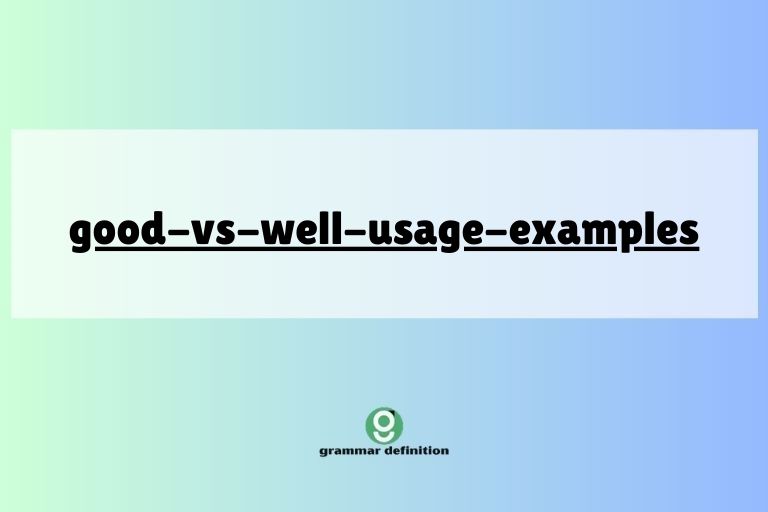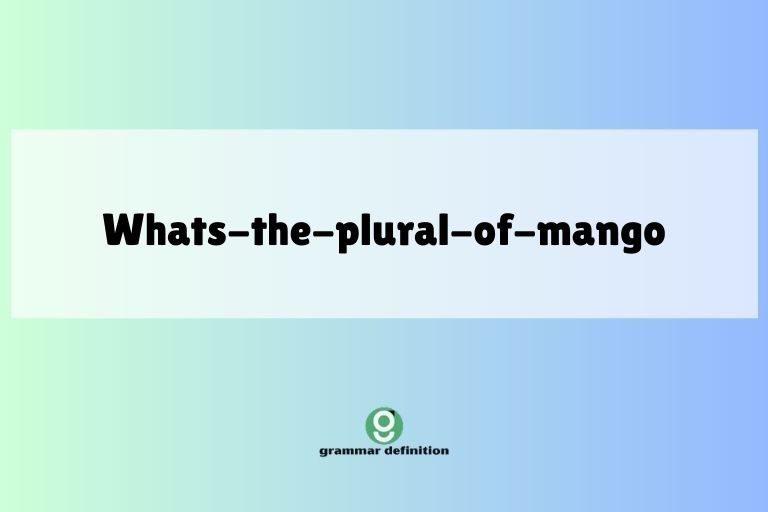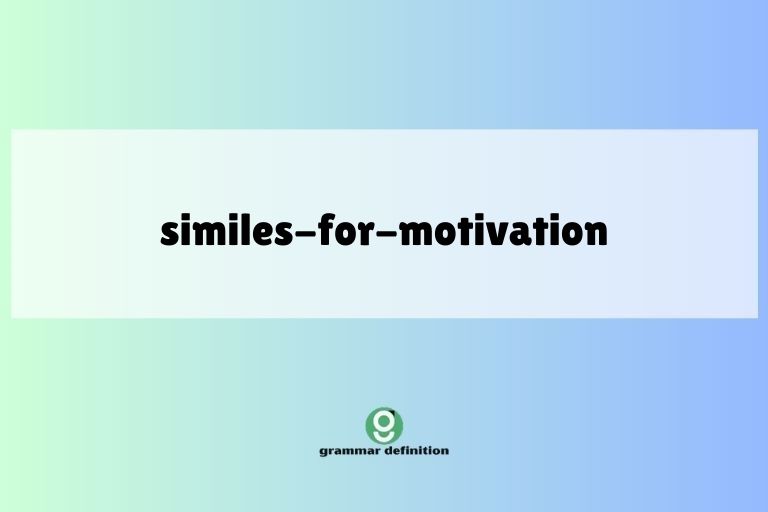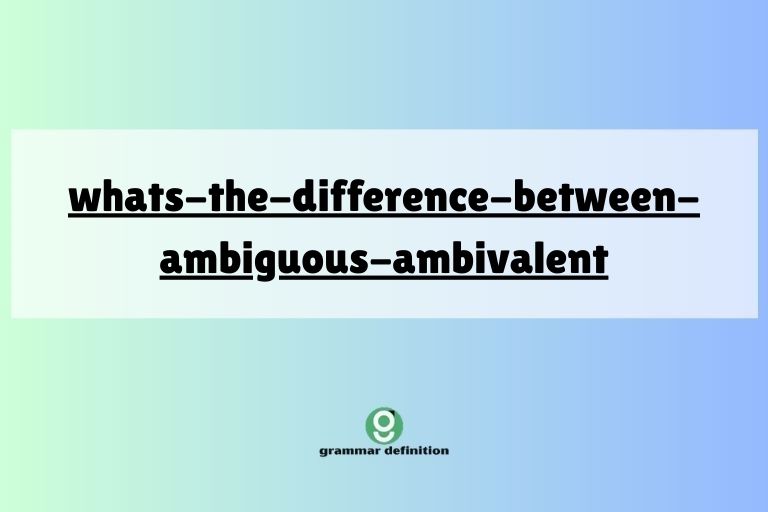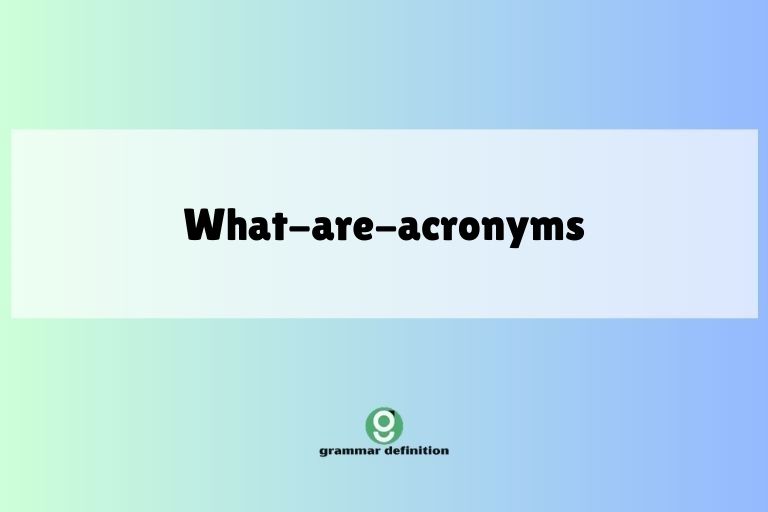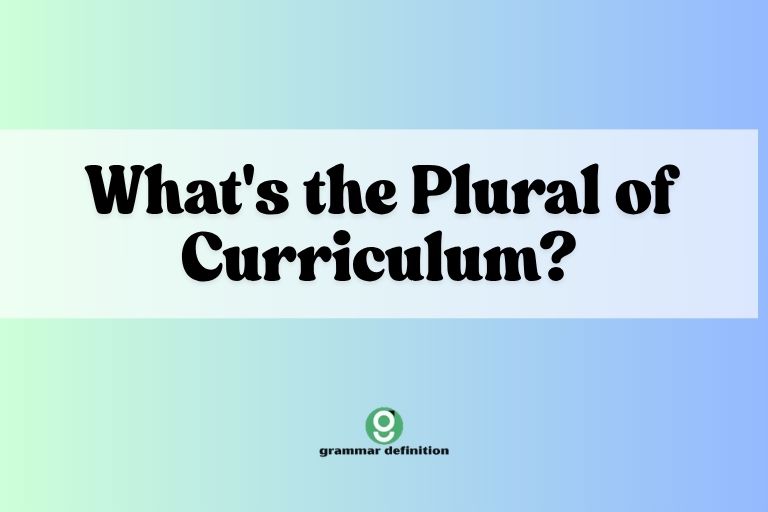Mastering Absolute Phrases: Definition, Usage, and Examples
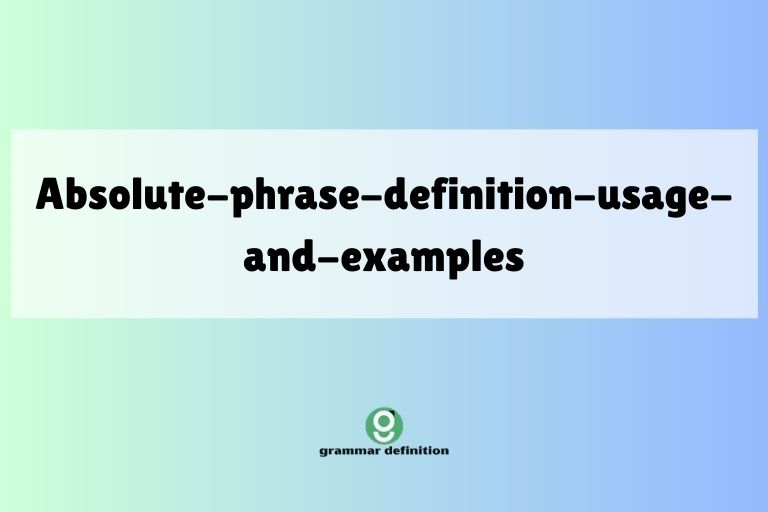
Absolute phrases are a fascinating, yet often overlooked, element of English grammar. Understanding them can significantly enhance your writing, adding depth, sophistication, and nuance.
This article provides a comprehensive guide to absolute phrases, covering their definition, structure, usage, and common mistakes. Whether you are a student, a writer, or simply an English language enthusiast, this guide will equip you with the knowledge and skills to effectively use absolute phrases in your own writing.
By the end of this guide, you’ll be able to identify, construct, and utilize absolute phrases with confidence.
This article also delves into advanced topics, offering practice exercises to reinforce your learning, and addressing frequently asked questions to clarify any lingering doubts. Prepare to elevate your grammatical prowess and enrich your expressive capabilities by mastering the art of absolute phrases.
Table of Contents
- Definition of Absolute Phrases
- Structural Breakdown of Absolute Phrases
- Types or Categories of Absolute Phrases
- Examples of Absolute Phrases
- Usage Rules for Absolute Phrases
- Common Mistakes with Absolute Phrases
- Practice Exercises
- Advanced Topics in Absolute Phrases
- Frequently Asked Questions (FAQ)
- Conclusion
Definition of Absolute Phrases
An absolute phrase, also known as a nominative absolute, is a group of words that modifies an entire clause or sentence. It typically consists of a noun or pronoun followed by a participle (a verb form ending in -ing or -ed) and any modifiers. Unlike clauses, absolute phrases do not have a subject-verb relationship with the main clause they modify. They add extra information or context to the sentence, often describing the cause, reason, condition, or result of the main clause’s action.
Absolute phrases are set off from the rest of the sentence by commas. They can appear at the beginning, middle, or end of a sentence.
Their primary function is to provide additional details that enrich the meaning of the sentence without being grammatically integrated into the main clause. They function adverbially, modifying the whole sentence rather than a specific word or phrase within it.
Absolute phrases are considered a type of nonessential or nonrestrictive element in a sentence. This means that the information they provide, while adding detail and context, is not crucial for the basic understanding of the sentence. Removing the absolute phrase would not fundamentally change the core meaning of the sentence, although it might make it less descriptive or informative.
Structural Breakdown of Absolute Phrases
The basic structure of an absolute phrase is as follows:
Noun (or Pronoun) + Participle (+ Modifiers)
Let’s break down each component:
* Noun/Pronoun: This is the subject of the absolute phrase and often refers to something or someone mentioned in the main clause, although it doesn’t have to. It could be a person, place, thing, or abstract idea.
* Participle: This is a verb form that functions as an adjective. It can be a present participle (ending in -ing) or a past participle (often ending in -ed, -en, -d, -t, or -n). The participle describes the state or action of the noun or pronoun in the absolute phrase.
* Modifiers (Optional): These are words or phrases that further describe the noun/pronoun or the participle. They can include adjectives, adverbs, prepositional phrases, or other descriptive elements.
Here are some examples illustrating the structure:
* Example 1: The game over, the fans rushed the field. (Noun: *game*, Participle: *over*)
* Example 2: Her heart pounding, she opened the envelope. (Noun: *heart*, Participle: *pounding*)
* Example 3: The sun having set, we started a campfire. (Noun: *sun*, Participle: *having set*)
* Example 4: All things considered, the project was a success. (Noun: *things*, Participle: *considered*)
As you can see, the absolute phrase provides additional information that is related to the main clause but is not grammatically essential to it.
Types or Categories of Absolute Phrases
While the basic structure remains the same, absolute phrases can be categorized based on the type of participle used and the context they provide.
Based on Participle Type:
* Present Participle Absolute Phrases: These use a present participle (ending in -ing) to describe an ongoing action or state.
* Example: The rain falling steadily, the hikers decided to turn back.
* Past Participle Absolute Phrases: These use a past participle (often ending in -ed) to describe a completed action or a state of being.
* Example: The doors locked, the building was secure for the night.
* Perfect Participle Absolute Phrases: These use “having” followed by a past participle to indicate that the action was completed before the action in the main clause.
* Example: The report having been submitted, she could finally relax.
Based on Context Provided:
* Cause/Reason: These phrases explain the reason or cause for the action in the main clause.
* Example: The weather being so nice, we decided to have a picnic.
* Condition: These phrases describe a condition upon which the main clause depends.
* Example: Circumstances permitting, we will hold the meeting tomorrow.
* Time: These phrases indicate when the action in the main clause took place.
* Example: The day drawing to a close, we packed up our equipment.
* Circumstance/Setting: These phrases describe the setting or circumstances surrounding the main clause’s action.
* Example: Flags waving in the breeze, the parade began.
Examples of Absolute Phrases
Here are several examples of absolute phrases, categorized by their function, to illustrate their versatility and usage in different contexts.
Table 1: Absolute Phrases Indicating Cause or Reason
These phrases explain the reason or cause for the action in the main clause. Note the use of commas to separate the absolute phrase from the rest of the sentence.
| Example Sentence | Absolute Phrase |
|---|---|
| The weather being so warm, we decided to go to the beach. | The weather being so warm |
| Her spirits soaring, she aced the exam. | Her spirits soaring |
| His work completed, he left the office early. | His work completed |
| The opportunity arising, she seized it without hesitation. | The opportunity arising |
| The funds being limited, we had to scale back the project. | The funds being limited |
| The audience captivated, the speaker continued his inspiring speech. | The audience captivated |
| His health failing, he decided to retire from his position. | His health failing |
| The evidence suggesting his guilt, the jury deliberated for hours. | The evidence suggesting his guilt |
| The team exhausted, they celebrated their hard-earned victory. | The team exhausted |
| The music playing softly, the couple danced gracefully. | The music playing softly |
| The children excited, they eagerly awaited the arrival of Santa Claus. | The children excited |
| The coffee brewing, she started to prepare breakfast. | The coffee brewing |
| The situation escalating, they called for backup. | The situation escalating |
| The meeting adjourned, everyone headed to the cafeteria. | The meeting adjourned |
| The sun shining brightly, they decided to have a picnic in the park. | The sun shining brightly |
| Her voice trembling, she delivered a heartfelt speech. | Her voice trembling |
| The clock ticking loudly, he felt the pressure mounting. | The clock ticking loudly |
| The food smelling delicious, everyone lined up for seconds. | The food smelling delicious |
| His heart pounding, he stepped onto the stage. | His heart pounding |
| The car sputtering, they pulled over to the side of the road. | The car sputtering |
| The baby sleeping soundly, she finally had a moment to herself. | The baby sleeping soundly |
| The flowers blooming beautifully, the garden was a sight to behold. | The flowers blooming beautifully |
Table 2: Absolute Phrases Indicating Time
These phrases indicate when the action in the main clause took place. They often use present participles to describe an ongoing state or circumstance.
| Example Sentence | Absolute Phrase |
|---|---|
| The hour growing late, we decided to call it a night. | The hour growing late |
| The sun setting in the west, the birds flew back to their nests. | The sun setting in the west |
| The meeting drawing to a close, the attendees began to gather their belongings. | The meeting drawing to a close |
| The semester ending soon, students were busy preparing for exams. | The semester ending soon |
| The project nearing completion, the team celebrated their success. | The project nearing completion |
| The year coming to an end, people reflected on their achievements. | The year coming to an end |
| The day dawning, the city began to stir. | The day dawning |
| The game progressing, the tension in the stadium increased. | The game progressing |
| The storm approaching, they sought shelter in the nearest building. | The storm approaching |
| The concert starting, the audience erupted in applause. | The concert starting |
| The play commencing, the curtains rose to reveal the set. | The play commencing |
| The movie beginning, everyone settled into their seats. | The movie beginning |
| The lecture starting, the students took out their notebooks. | The lecture starting |
| The show starting, the lights dimmed. | The show starting |
| The competition beginning, athletes prepared for their events. | The competition beginning |
| The ceremony starting, the graduates walked to the stage. | The ceremony starting |
| The interview starting, he took a deep breath. | The interview starting |
| The dance starting, couples took to the floor. | The dance starting |
| The journey starting, they set off with excitement. | The journey starting |
| The party starting, guests arrived with gifts. | The party starting |
| The race starting, the runners sped off. | The race starting |
| The performance starting, the artists took their positions. | The performance starting |
Table 3: Absolute Phrases Indicating Circumstance or Setting
These phrases describe the setting or circumstances surrounding the main clause’s action. They add descriptive detail and create a vivid image in the reader’s mind.
| Example Sentence | Absolute Phrase |
|---|---|
| Flags waving in the breeze, the parade marched down the street. | Flags waving in the breeze |
| Music playing in the background, the guests mingled and chatted. | Music playing in the background |
| The stars shining brightly, we sat around the campfire. | The stars shining brightly |
| The city lights twinkling, she gazed out the window. | The city lights twinkling |
| Rivers flowing gently, the landscape was serene and peaceful. | Rivers flowing gently |
| Trees swaying in the wind, the forest seemed alive. | Trees swaying in the wind |
| Birds singing sweetly, the morning was filled with joy. | Birds singing sweetly |
| Waves crashing on the shore, they walked along the beach. | Waves crashing on the shore |
| Snow falling softly, the town was transformed into a winter wonderland. | Snow falling softly |
| Leaves rustling underfoot, we hiked through the autumn woods. | Leaves rustling underfoot |
| The aroma of coffee filling the air, she woke up refreshed. | The aroma of coffee filling the air |
| The sound of laughter echoing, the party was in full swing. | The sound of laughter echoing |
| The scent of flowers perfuming the air, the garden was enchanting. | The scent of flowers perfuming the air |
| The taste of salt on her lips, she remembered the ocean. | The taste of salt on her lips |
| The warmth of the sun on their skin, they relaxed by the pool. | The warmth of the sun on their skin |
| The hustle and bustle of the city surrounding them, they felt alive. | The hustle and bustle of the city surrounding them |
| The silence of the night enveloping them, they found peace. | The silence of the night enveloping them |
| The chill of the winter air biting, they huddled around the fire. | The chill of the winter air biting |
| The glow of the moon illuminating the path, they continued their journey. | The glow of the moon illuminating the path |
| The hum of the machines resonating, the factory was busy. | The hum of the machines resonating |
| The bustle of the market surrounding them, they bartered for goods. | The bustle of the market surrounding them |
| The glow of the embers fading, they added more wood to the fire. | The glow of the embers fading |
Table 4: Absolute Phrases Indicating Condition
These phrases describe a condition upon which the main clause depends. They often use present or past participles to express the condition.
| Example Sentence | Absolute Phrase |
|---|---|
| Circumstances permitting, we will proceed with the plan. | Circumstances permitting |
| Weather allowing, we will have the picnic tomorrow. | Weather allowing |
| Time permitting, I will visit you next week. | Time permitting |
| All things considered, the project was a success. | All things considered |
| God willing, we will meet again soon. | God willing |
| Resources being available, we can expand the program. | Resources being available |
| Health permitting, she will travel to Europe. | Health permitting |
| Funds allowing, they will renovate the house. | Funds allowing |
| Conditions being favorable, the mission will proceed as planned. | Conditions being favorable |
| Support being provided, they can complete the task. | Support being provided |
| Assistance being offered, they can overcome the challenge. | Assistance being offered |
| Guidance being given, they can navigate the situation. | Guidance being given |
| Training being provided, they can improve their skills. | Training being provided |
| Education being offered, they can broaden their knowledge. | Education being offered |
| Opportunities arising, they can advance their careers. | Opportunities arising |
| Challenges being faced, they can demonstrate their resilience. | Challenges being faced |
| Obstacles being overcome, they can achieve their goals. | Obstacles being overcome |
| Difficulties being addressed, they can resolve the issues. | Difficulties being addressed |
| Problems being solved, they can move forward with confidence. | Problems being solved |
| Issues being resolved, they can restore harmony. | Issues being resolved |
| Conflicts being mediated, they can find common ground. | Conflicts being mediated |
| Disputes being settled, they can rebuild trust. | Disputes being settled |
Usage Rules for Absolute Phrases
Using absolute phrases correctly involves adhering to a few key rules:
1. Comma Usage: Always set off absolute phrases with commas. If the phrase is in the middle of the sentence, it needs a comma before and after it.
2. No Grammatical Connection: The absolute phrase should not have a direct grammatical connection to the main clause. It doesn’t act as a subject, verb, or object within the main clause.
3. Noun/Pronoun and Participle: The phrase must include a noun or pronoun and a participle.
4. Meaningful Modification: The phrase should add meaningful information or context to the sentence. Avoid using trivial or irrelevant absolute phrases.
5. Placement: Absolute phrases can be placed at the beginning, middle, or end of a sentence, depending on the desired emphasis and flow.
6. Avoid Dangling Modifiers: Ensure that the noun or pronoun in the absolute phrase clearly refers to the subject or a related element in the main clause to avoid confusion.
7. Variety: While absolute phrases can enhance writing, overuse can make it sound stilted or unnatural. Use them judiciously to add emphasis or detail where appropriate.
8. Consistency: Maintain a consistent style and tone when using absolute phrases throughout a piece of writing.
Common Mistakes with Absolute Phrases
Several common mistakes can occur when using absolute phrases. Being aware of these errors can help you avoid them in your own writing.
1. Dangling Modifiers
A dangling modifier is a phrase that doesn’t clearly modify the intended subject in the sentence. This can lead to confusion or unintended meanings.
* Incorrect: Exhausted from the hike, the hotel room was a welcome sight. (Who was exhausted? The sentence implies the hotel room was exhausted.)
* Correct: Exhausted from the hike, we found the hotel room a welcome sight. (Now it’s clear that *we* were exhausted.)
* Correct (using absolute phrase): Our bodies exhausted from the hike, the hotel room was a welcome sight.
2. Lack of Comma Separation
Failing to separate the absolute phrase with commas is a common error that can make the sentence grammatically incorrect and difficult to read.
* Incorrect: The game over the crowd cheered.
* Correct: The game over, the crowd cheered.
3. Subject-Verb Agreement Issues
Since absolute phrases are independent of the main clause, they should not affect the subject-verb agreement of the main clause. However, confusion can arise if the noun in the absolute phrase is mistakenly treated as the subject of the main clause.
* Incorrect: His presentation finished, he were relieved.
* Correct: His presentation finished, he was relieved.
4. Using Clauses Instead of Absolute Phrases
Sometimes, writers mistakenly use a clause where an absolute phrase would be more appropriate and concise.
* Incorrect: Because the rain was falling, we stayed inside.
* Correct (using absolute phrase): The rain falling, we stayed inside.
5. Overuse of Absolute Phrases
While absolute phrases can add richness to writing, overuse can make it sound awkward or pretentious. Use them sparingly and only when they genuinely enhance the meaning of the sentence.
* Awkward: The sun shining, the birds singing, we went for a walk, our spirits high.
* Better: The sun shining and the birds singing, we went for a walk with high spirits.
Practice Exercises
Test your understanding of absolute phrases with these practice exercises. Identify the absolute phrase in each sentence and rewrite sentences to include absolute phrases.
Exercise 1: Identifying Absolute Phrases
Identify the absolute phrase in each of the following sentences.
| Question | Answer |
|---|---|
| 1. The lecture finished, the students left the hall. | The lecture finished |
| 2. Her eyes shining, she accepted the award. | Her eyes shining |
| 3. The weather being pleasant, we decided to have a picnic. | The weather being pleasant |
| 4. All things considered, it was a successful event. | All things considered |
| 5. His work completed, he went home to relax. | His work completed |
| 6. The sun having set, the air grew cooler. | The sun having set |
| 7. The music playing softly, they danced the night away. | The music playing softly |
| 8. The game drawing to a close, the fans grew anxious. | The game drawing to a close |
| 9. The test completed, she breathed a sigh of relief. | The test completed |
| 10. The dishes washed, he dried them carefully. | The dishes washed |
Exercise 2: Rewriting Sentences with Absolute Phrases
Rewrite the following sentences to include an absolute phrase that adds more detail or context.
| Question | Answer |
|---|---|
| 1. Because the rain was falling, they canceled the outdoor concert. | The rain falling heavily, they canceled the outdoor concert. |
| 2. She was nervous, so she took a deep breath before her presentation. | Her heart pounding nervously, she took a deep breath before her presentation. |
| 3. They finished the project and celebrated their success. | Their project completed, they celebrated their success. |
| 4. He was exhausted, so he went straight to bed. | His energy depleted, he went straight to bed. |
| 5. The sun set, and the sky turned orange and pink. | The sun setting in a blaze of glory, the sky turned orange and pink. |
| 6. The students were prepared, so they aced the exam. | Their knowledge secure, the students aced the exam. |
| 7. The food smelled delicious, and everyone lined up for seconds. | The aroma tantalizing everyone, they lined up for seconds. |
| 8. The clock ticked loudly, and he felt the pressure mounting. | The clock ticking relentlessly, he felt the pressure mounting. |
| 9. The team was tired, but they won the championship. | Their bodies aching with fatigue, the team won the championship. |
| 10.The music played, and the couple danced gracefully. | The music flowing smoothly, the couple danced gracefully. |
Exercise 3: Creating Sentences with Absolute Phrases
Create five original sentences that include absolute phrases. Ensure that the phrases are correctly punctuated and add meaningful context to the sentences.
Here are example answers for exercise 3:
- The final buzzer sounding, the crowd erupted in cheers.
- Her presentation delivered flawlessly, she felt a wave of relief wash over her.
- The dishes washed and put away, he settled in for a relaxing evening.
- The car packed and ready, they embarked on their cross-country adventure.
- His mind racing with ideas, he eagerly began writing his novel.
Advanced Topics in Absolute Phrases
For advanced learners, several nuances and complexities surrounding absolute phrases merit further exploration.
Elliptical Absolute Phrases
Elliptical absolute phrases are those that omit certain words, typically a form of the verb “to be,” for the sake of brevity and stylistic effect.
* Example: Weather permitting, we will go for a hike. (The full phrase would be “Weather being permitted…”)
* Example: God willing, we will meet again soon. (The full phrase would be “God being willing…”)
These phrases are common in idiomatic expressions and can add a touch of elegance to writing.
The Role of Absolute Phrases in Formal vs. Informal Writing
Absolute phrases are generally more common in formal writing than in informal speech. They contribute to a more sophisticated and nuanced style, making them suitable for academic papers, literary works, and professional reports.
However, they can also be used effectively in informal writing to add emphasis or create a particular mood.
Absolute Phrases vs. Other Types of Modifiers
It’s important to distinguish absolute phrases from other types of modifiers, such as participial phrases and appositive phrases. While all these elements add detail to a sentence, they function differently.
* Participial Phrase: A participial phrase modifies a noun or pronoun in the main clause and is grammatically connected to it.
* Example: Running down the street, the dog chased the ball. (*Running down the street* modifies *dog*.)
* Appositive Phrase: An appositive phrase renames or identifies a noun or pronoun in the main clause.
* Example: My brother, a talented musician, plays the piano beautifully. (*A talented musician* renames *brother*.)
Unlike these, absolute phrases modify the entire clause or sentence and are not grammatically integrated into it.
Frequently Asked Questions (FAQ)
Here are some frequently asked questions about absolute phrases.
- What is the difference between an absolute phrase and a participial phrase?
An absolute phrase modifies the entire sentence and is not grammatically connected to any specific word in the main clause. A participial phrase, on the other hand, modifies a noun or pronoun within the main clause and is grammatically connected to it. The participial phrase acts as an adjective, describing the noun or pronoun it modifies, while the absolute phrase functions adverbially, modifying the entire sentence.
- Can an absolute phrase come at the beginning, middle, or end of a sentence?
Yes, absolute phrases can be placed at the beginning, middle, or end of a sentence. The placement depends on the desired emphasis and flow of the sentence. Regardless of its position, an absolute phrase should always be set off with commas.
- Do absolute phrases need to agree in number with the subject of the main clause?
No, absolute phrases do not need to agree in number with the subject of the main clause because they are grammatically independent of the main clause. The noun or pronoun in the absolute phrase functions as its own subject within the phrase.
- Is it okay to use absolute phrases frequently in writing?
While absolute phrases can enhance writing, overuse can make it sound stilted or unnatural. Use them judiciously to add emphasis or detail where appropriate, but avoid including them in every sentence.
- What should I do if I’m not sure whether a phrase is absolute or not?
If you’re unsure whether a phrase is absolute, check if it contains a noun or pronoun followed by a participle and if it modifies the entire sentence rather than a specific word within it. Also, ensure that it’s set off with commas and doesn’t have a direct grammatical connection to the main clause.
- Can an absolute phrase contain another phrase within it?
Yes, an absolute phrase can contain other phrases within it, such as prepositional phrases or adjectival phrases, as long as the core structure (noun/pronoun + participle) remains intact and the entire phrase functions as an absolute modifier.
- How can I improve my ability to identify and use absolute phrases effectively?
Practice is key to improving your ability to identify and use absolute phrases. Read widely and pay attention to how skilled writers use them in their work. Try rewriting sentences to include absolute phrases, and ask for feedback on your writing to ensure you’re using them correctly.
- What are some common words or phrases that often appear in absolute phrases?
Common words and phrases in absolute phrases include participles like *being*, *having*, *considered*, and nouns referring to time, weather, or general circumstances. Phrases like “all things considered,” “weather permitting,” and “time allowing” are frequently used as absolute phrases.
Conclusion
Mastering absolute phrases can significantly elevate your writing, adding depth, sophistication, and precision. By understanding their structure, usage rules, and common pitfalls, you can effectively incorporate them into your writing to enhance clarity and create a more vivid and engaging style.
Remember to use them judiciously, ensuring they add meaningful context without sounding forced or unnatural.
Continue to practice identifying and constructing absolute phrases, and pay attention to how they are used by skilled writers. With consistent effort, you’ll become proficient in using these powerful grammatical tools to enrich your writing and express yourself with greater nuance and eloquence.
Embrace the challenge, and watch your writing skills soar to new heights!

